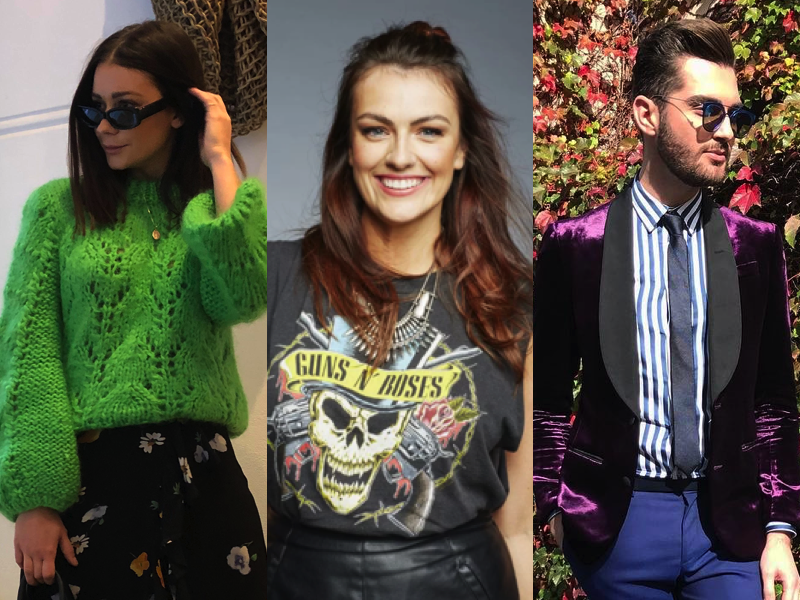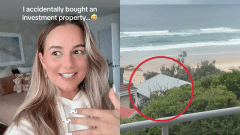
What’s exciting, nerve-wracking and makes you feel like you could projectile vomit at any given moment?
Interviews, of course.
They’ve got the ability to change your life as you know it, something that’s not stumbled upon every day – so best not to fudge it.
We spoke to our very own Head Of Editorial, Josephine Rozenberg-Clarke, The Institute Group‘s Communication & Careers Manager, Bryce McIntosh, Shevoke‘s Founder / Director, Lisa Hyde and Revlon‘s Marketing Manager, Amy Kingon Smith for interview advice. Hot tip: some of their answers mirror one another, meaning you should absolutely follow these things because they’re basically expected of you.
What’s the most important thing you’re lookin’ for during an interview?
Josie: I’m looking for someone who knows the brand and is passionate about it. I think that applies for any job you’re going for, whether it’s a retail gig or a bar job or a website. Take the time to get to know the job you’re applying for – e.g. the products, the vibe of the bar, reading the stories on the website.
Bryce: Confidence, go-getter attitude and sense of initiative.
Lisa: I look for someone who is passionate about what they want to do.
Amy: Attitude. Whilst skills and experience are important, a positive, can-do attitude can often overcome knowledge gaps and is difficult to teach.

How can someone show that they’re confident?
Josie: Think about why you should have the job and make that known – it’s okay to sell yourself in a job interview, that’s the whole point after all! Make eye contact, make a joke, ask your own questions – it’s super normal to be nervous but being able to communicate will show a prospective employer that you’re confident.
Bryce: Preparation and research prior. That way you will nail any question that’s thrown your way. Connecting and forming some form of rapport with the interviewer/s will also be an added bonus.
Lisa: Confidence comes from knowledge, start by researching the brand and understanding their brand culture and values. This will certainly help your confidence when talking about why you want to work for the company.

Amy: Good eye contact and a self-assured, calm delivery when responding to questions (however un-calm you might be feeling!) Be yourself and let the real you shine through – others quickly pick up on something if it doesn’t feel authentic.
What kind of body language is received well?
Josie: Don’t slouch, try not to fidget. If you sit up straight and keep your hands still it conveys a level of respect and confidence.
Bryce: Arms uncrossed, shoulders back, general good posture. Eye contact is an absolute must.
Lisa: I always like someone who can make eye contact as it comes across more genuine.
Amy: Good communication is critical for any career working with people – which accounts for most jobs! Open body language (i.e. no crossed-arms), sitting straight (not hunched) and more smiles than frowns, is a great way to establish rapport with the interviewer so that your messages are well received.
How can one establish a good dynamic from the get-go?
Josie: Find some common ground with some small talk – even a simple “It’s so hot today, I’m melting!” or “I love this office – that artwork is amazing” will break the ice and make things feel less forced / stuffy.
Bryce: Other than a handshake and a smile, it’s always nice to ask the person on the other end how their day has been as well as thanking them for inviting you for an interview.
Lisa: Always go in with a positive attitude and don’t be afraid to set the tone for what you want to get out of the interview.
Amy: A smile and a firm handshake, to accompany your introduction goes a long way and builds the immediate connection. 1-2 comments or questions which show empathy such as: asking how their day is or commenting on your appreciation for fitting you into their busy schedule will be appreciated.

Any tips for wrapping it up? How should the person being interviewed leave things?
Josie: Always have a couple of questions up your sleeve – it shows that you’re genuinely interested in the role / brand / company.
Bryce: Aim to understand the next steps of the selection process for the role, as well as question how your interview went. That way if you progress or not, you’re at least taking something away from the interview to work on for next time.
Lisa: At the end of an interview always share your interest by asking 1-2 questions – this shows that you are a keen person and you’re already taking initiative to find out more about the job/company.
Amy: Good manners never go astray, always thank the interviewer for their time and reiterate your interest in the role. Leave the interviewer in no doubt that you want the job.
Any dealbreakers or red flags?
Josie: It’s not a great look to come out swinging with the “What’s the pay” question. Obviously, it’s important, but let the prospective employer bring it up first – if they don’t just ask it yourself before the chat wraps up.
Bryce: Rudeness and arrogance. Also, put your phone away.
Lisa: Consistently stroking and playing with your hair is something that really annoys me and could possibly be a deal breaker.

Amy: Rudeness or arrogance are immediate turn-offs. Be careful not to over-do it too… sometimes we overcompensate when we’re excited and nervous at the same time.
What’s one thing the interviewee needs to express before leaving the interview?
Josie: If you have an extremely long notice period (longer than the normal 4 weeks) or you have that yuge Euro summer trip planned in the near future, definitely give your potential future boss a heads up out of courtesy. It’s never been a dealbreaker for me if someone needs extra time, but I like to get the heads up so I can prepare.
Bryce: “I really want this job”. It will open up to an entire conversation on a more personal level showcasing some important character traits.
Lisa: Your strengths, make sure the interviewer knows that by hiring you the company will benefit – tell them why they need you.
Amy: Show your passion, interest and what you can offer the company or bring to the role. This could be your point-of-difference when compared to other candidates.







